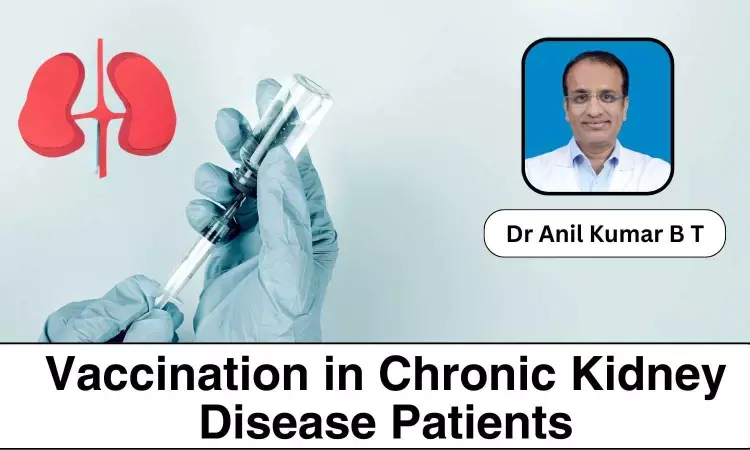- Home
- Medical news & Guidelines
- Anesthesiology
- Cardiology and CTVS
- Critical Care
- Dentistry
- Dermatology
- Diabetes and Endocrinology
- ENT
- Gastroenterology
- Medicine
- Nephrology
- Neurology
- Obstretics-Gynaecology
- Oncology
- Ophthalmology
- Orthopaedics
- Pediatrics-Neonatology
- Psychiatry
- Pulmonology
- Radiology
- Surgery
- Urology
- Laboratory Medicine
- Diet
- Nursing
- Paramedical
- Physiotherapy
- Health news
- Fact Check
- Bone Health Fact Check
- Brain Health Fact Check
- Cancer Related Fact Check
- Child Care Fact Check
- Dental and oral health fact check
- Diabetes and metabolic health fact check
- Diet and Nutrition Fact Check
- Eye and ENT Care Fact Check
- Fitness fact check
- Gut health fact check
- Heart health fact check
- Kidney health fact check
- Medical education fact check
- Men's health fact check
- Respiratory fact check
- Skin and hair care fact check
- Vaccine and Immunization fact check
- Women's health fact check
- AYUSH
- State News
- Andaman and Nicobar Islands
- Andhra Pradesh
- Arunachal Pradesh
- Assam
- Bihar
- Chandigarh
- Chattisgarh
- Dadra and Nagar Haveli
- Daman and Diu
- Delhi
- Goa
- Gujarat
- Haryana
- Himachal Pradesh
- Jammu & Kashmir
- Jharkhand
- Karnataka
- Kerala
- Ladakh
- Lakshadweep
- Madhya Pradesh
- Maharashtra
- Manipur
- Meghalaya
- Mizoram
- Nagaland
- Odisha
- Puducherry
- Punjab
- Rajasthan
- Sikkim
- Tamil Nadu
- Telangana
- Tripura
- Uttar Pradesh
- Uttrakhand
- West Bengal
- Medical Education
- Industry
Understanding Vaccination in Chronic Kidney Disease Patients - Dr Anil Kumar B T

Vaccines in CKD
Patients with chronic kidney disease (CKD), particularly those undergoing dialysis or having a kidney transplant, are at high risk of morbidity and death due to infection. After cardiovascular illness, it is the second most common cause of death. Patients with CKD are susceptible to infections because their immune responses to fight against infections is reduced.
This is especially more in patients with advanced stages of CKD, Dialysis and Kidney transplant. Vaccination is used to prevent numerous infectious diseases that might be fatal, and it can produce cellular and humoral immunity against particular pathogens. However, vaccination efficacy is diminished in patients with CKD compared with general population.
How vaccines work?
Immunisations imitate an infection, which helps shield against some diseases. They protect you by helping your body’s immune system “prepare” for a real infection. Vaccines use components of a weakened or dead germ to do this. Your body creates antibodies after the injection, which aid in the body's ability to identify and eliminate germs that are harmful.
These antibodies will defend you in the event that you come into contact with the actual germ. To ensure that your body produces enough antibodies for some vaccines, you may need to receive a booster dose. For this reason, certain vaccines may require a single dose, while others may require many shots.
To ensure there are sufficient antibodies for protection, a blood test may be performed in certain circumstances. Since it often takes a few weeks for the body to mount a complete defence against an infection. An individual may contract an illness and have symptoms either just before or shortly after receiving a vaccination.
Effectiveness
As a whole, vaccinations are a very beneficial method of maintaining public health. Vaccinations might not be able to prevent your body from contracting a particular infection, such as COVID-19 or influenza.
Vaccines, on the other hand, help your body prepare in case the germ enters your body and prevent you from becoming severely ill. This suggests that vaccinations do not guarantee against contracting the illness. Increasing your chances of rapidly overcoming that infection is the aim.
Recommended vaccines for CKD patients in India:
The common vaccines recommended in patients with CKD are:
- Hepatitis B vaccine
- Pneumococcal vaccine
- Influenza vaccine
Other optional vaccines are:
- Hepatitis A
- MMR
- Varicella
- Diphtheria and Tetanus toxoids
Side effects
There is a chance that vaccines will have negative effects, just like any drug. A slight rash, pain, or discomfort on the skin where the vaccination was administered may occur in certain individuals. Headache, fatigue, or a mild fever are some other adverse effects of vaccinations. These minor side effects are very common and shouldn't be concerning.
More severe adverse effects include immune system reactions known as Guillain-Barré syndrome (tingling and weakness in the feet, legs, arms, or face, shortness of breath, choking on saliva), seizures, or allergic reactions (e.g., hives, swelling of the face and throat, fast heartbeat, dizziness, or weakness). These side effects are extremely rare.
Conclusion
The safest method of preventing serious illnesses and guarding against specific diseases is through vaccination. The protection that vaccinations offer is not as likely to prevent serious and deadly complications from natural illnesses.
Dr Anil Kumar B T (MBBS, MD (General Medicine), DNB (Nephrology)) is a HOD, Sr Consultant Nephrologist & Chief Transplant Physician at Gleneagles BGS Hospital, Kengeri, Bengaluru. With experience of over 10 years, Dr Anil’s expertise is in renal transplantation and has been involved in more than 300 transplantations.


